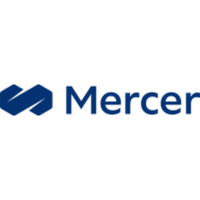Reinventing reward: the rising challenges, risks and opportunities for 2021

REBA’s exclusive Reinventing Reward Breakfast, in association with Mercer Marsh Benefits, brought senior reward professionals from an array of sectors together to discuss the rising challenges, risks and opportunities for 2021.
A key theme from the discussions centred on the need for a more strategic approach to reward and benefits strategy that has company culture at its core.
Culture first and foremost
One of the most significant changes we have seen over the past few months is the value of human workplaces. Time again we have heard how open and honest communications from leaders, empathy for individual circumstances and simple acts of kindness, have fuelled inclusive workplace cultures. The challenge now is to maintain this momentum to continue to drive and incentivise employees while also encouraging innovation and performance.
This will be particularly difficult given the ongoing restrictions people are facing on their daily lives. Building a culture that supports people’s resilience and tenacity will be key to achieving the goals of innovation and performance.
Connected to this is how employers can adapt their employee benefit and reward strategies to take a culture-first approach. Attendees of the breakfast event indicated that, driven by culture change, they are increasingly interested in behaviour-led rather than product-led solutions.
Providing employees with education, support and communicating effectively, were seen as key ways to support workplace culture. And so employee benefits should be built around the culture that the organisation is developing, rather than building a culture around the benefits it offers.
A way that one employer was looking to tackle this challenge was through employee recognition. A current risk is that many employees feel isolated from their colleagues – particularly those who are now home-based – and so ensuring that their work is still appreciated and recognised is vital. By relaunching their recognition platform and creating recognition-related objectives for managers, they hope to drive a supportive workplace culture.
Other steps employers were taking to improve culture focused on communications, such as introducing workplace social networks (Slack, Yammer etc) and also employing internal comms specialists to support reward and HR messages.
Data insight
Understanding employees’ needs, how they use current benefits and what their challenges are, is what underpins and supports an organisation’s culture.
Over the past few months, pulse surveys and employee forums have helped to shape employers’ response to the pandemic. The challenge now is to take a step back and understand how this reactive response fits in with the overall strategy in the longer-term. In essence, turning a reactive time into a proactive strategy.
Data will be at heart of making these decisions. Getting on top of the data is much more important than it has been before, to enable employers to understand what value they’re getting from their benefits and to make strategic decisions about what to keep and what to change.
Employers have an array of data at their fingertips, from internal and provider data through to employee feedback and engagement surveys. How best to utilise the information is often down to the organisation and what it’s trying to ascertain. However, one attendee suggested segmenting and categorising employee data into groups based on how they are thinking and feeling about COVID. This can help to direct employers’ support.
New ways of working have also shifted people’s priorities – highlighting the need for increased listening from employers – which may lead to a change in the total rewards package as a result.
The risk of not using data to properly review reward and benefits strategies, is that employers risk layering on benefits – particularly related to wellbeing – that are not getting any traction. Data is therefore critical in making informed decisions and stops employers from chasing ‘the next big thing’ and not being clear about what their proposition is.
Adapting reward and benefits strategies for the future
At the moment there are still a lot of practical questions around benefits and the future of work. Queries around company cars, office space, global mobility and simply managing benefits on an ongoing basis due to the impact of COVID, were raised by delegates. Global issues were also highlighted as an area of concern, with some organisations moving away from a one-size-fits-all response due to the varying ways different countries are managing COVID.
Yet, despite the uncertainty, there are some clear directions of travel. Employee communication will be central to reinforcing inclusive workplace cultures. Employers will need to adapt to ensure they are listening to all employees and that they are reaching and engaging those who may be feeling isolated from their colleagues. Digital tools will be essential to workplace communications.
Reinvigorating more fundamental benefits such as life insurance has also moved up the agenda. As employees think more about their own mortality and long-term health, traditional insurance and health benefits are gaining traction as employees seek stability. This highlights the need to communicate and capitalise on the value employees are now placing on these benefits.
Personalisation will also be key as employees respond to the COVID crisis in different ways. By adapting benefits, making them more flexible and personalised, and even giving managers more autonomy over wellbeing budgets so they can quickly respond to the needs of the their team, enables employees to feel better connected to their organisation and the company culture.
Conclusion
There is a huge amount of data at employers’ disposal to determine future directions for reward strategy. However, there is massive uncertainty and unanswered questions about how best to change reward and benefits for the future of work, and what the long-term effects of COVID-19 will be on people’s health and wellbeing.
What is clear, is that company cultures that support employees’ resilience, adaptability and tenacity, will be well placed to tackle the challenges and opportunities of 2021.
The author is Dawn Lewis, content editor at REBA.







